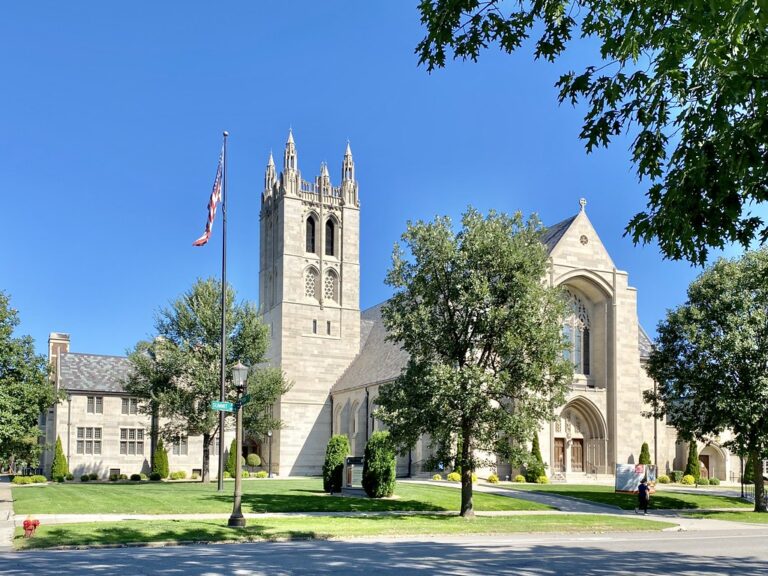
Rachel Sandalow-Ash is a student at Harvard Law School and a member of the Labor and Employment Lab.
On Friday, a white supremacist attacked two mosques in Christchurch, New Zealand, killing fifty people and injuring dozens more. In the aftermath of the attack, Facebook said that it removed 1.5 million videos of the mass shooting. However, directly hired facebook workers do not review violent material or other posts that violate the company’s policies. Rather, facebook farms out this work to subcontractor companies such as Cognizant. Last month, Casey Newton profiled Cognizant workers — known as content moderators — for the Verge. These content moderators make just $28,800 per year and are micromanaged down to the minute; for instance, they are allotted nine minutes per day of “wellness time,” but they are forbidden to go to the restroom during this time. Moreover, Muslim employees have been forbidden from using their wellness time to pray. Many content moderators have developed chronic PTSD or secondary traumatic stress from watching graphically violent videos for weeks, and months, or years on end. Cognizant employees are forced to sign non-disclosure agreements barring them from discussing their work for Facebook; these NDAs prevent them from discussing their abysmal working conditions with their friends and family.
The DC Court of Appeals sent a case involving an adjunct faculty union, University of Southern California v. NLRB and SEIU Local 721, back to the NLRB on remand, raising fears that the Board will make it harder for adjunct faculty members to unionize. In the 1980 case NLRB v. Yeshiva University, the Supreme Court held that tenured and tenure-track professors at private universities play a managerial role and are therefore excluded from the protections of the NLRA. However, in its 2014 Pacific Lutheran University decision, the NLRB clarified that this managerial designation does NOT extend to adjunct or non-tenure-track faculty. The Pacific Lutheran Board held that for faculty to be classified as managerial, they must exercise “actual” control over core aspects of the university finances and administration — which non-tenure-track faculty almost never do. Following Pacific Lutheran, the NLRB initially held that non-tenure track faculty at the University of Southern California were not managers and therefore could unionize and bargain collectively under the Board’s auspices.
While the Circuit Court largely upheld the Pacific Lutheran Board’s “high bar” for determining effective control and thus managerial status, it “disagreed with the NLRB on a key point — one that the new NLRB will get to review.” Whereas the Pacific Lutheran Board held that “a faculty subgroup seeking union recognition exercises effective control over a decision-making area through participation in a committee only when that subgroup constitutes a majority of the committee,” the Circuit Court stated that adjunct faculty participating in university committees could be found to exercise managerial control even if they did not constitute a majority. Adjunct faculty and their supporters now fear that the NLRB will use this remand from the DC Circuit to further limit adjunct faculty members’ collective bargaining rights. Randi Weingarten, the president of the American Federation of Teachers, said that the DC Circuit Court “regrettably put its thumb on the scale to make it harder for adjunct and nontenured faculty . . . to organize.”
The NLRB cited a Massachusetts hospital for threatening and intimidating Massachusetts Nurses Association members who wanted to wear pins in support of Ballot Question #1, which would have established safe staffing levels at hospitals across the state. Lisa Sullivan, a nurse at Heywood Hospital, said, “The hospital came down on nurses and patients who supported safe patient limits, even as the hospital itself was holding meetings against Question 1 and posting signs all over the building.” The Massachusetts Hospital Association’s committee spent $25 million to defeat the initiative last fall — the most ever spent by a single committee in a Massachusetts election.
The New York Times penned an obituary for Helen Miller, a home care worker and SEIU leader in Chicago, who passed away on March 5th. The obituary describes how Mrs. Miller helped secure living wages and collective bargaining rights for homecare workers, who have long been excluded from federal labor and employment laws.






Daily News & Commentary
Start your day with our roundup of the latest labor developments. See all
October 30
Sweden’s Tesla strike enters its third year; Seattle rideshare drivers protest Waymo’s expansion in the city.
October 29
9th Circuit rejects challenge to NLRB's constitutional structure; preemption challenges to state labor peace statutes
October 28
Two federal unions oppose CBA cancellations, another federal union urges Democrats to end the government shut down, and Paramount plans for mass layoffs
October 27
GM and Rivian announce layoffs; Boeing workers reject contract offer.
October 26
California labor unions back Proposition 50; Harvard University officials challenge a union rally; and workers at Boeing prepare to vote on the company’s fifth contract proposal.
October 24
Amazon Labor Union intervenes in NYS PERB lawsuit; a union engages in shareholder activism; and Meta lays off hundreds of risk auditing workers.